Discover financial empowerment resources
Discover financial empowerment resources
This 90-minute webinar provides frontline practitioners with foundational knowledge and skills to support Canadians living on a low income in accessing benefits. Participants will learn the importance of access to benefits for individuals and families, review key skills and opportunities for...

The first course from the Money Matters for Self-Employment series is Thinking About Self-Employment. In this free course, you'll learn what it means to be self-employed, different ways of being self-employed and if self-employment is right for...
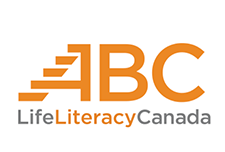
This report summarizes the first results from the Canadian Survey on Working Conditions. Explore how different kinds of workers experience core dimensions of quality of employment, including exposure to physical risks, emotional demands, work schedules and hours, time pressures, co-worker support,...

There are many different actions that can be taken to improve financial wellbeing. The Financial Wellbeing Framework offers 17 entry points to action to inform government, organizations, policymakers, decision-makers, practitioners, and researchers in their efforts to address financial...

Receiving a lump sum of money can be overwhelming to some people. Careful planning can help you make the most of your money. Here are some ways to financially prepare for your compensation in the First Nations Child and Family Services and Jordan’s Principle Settlement. Watch the...

This case study explores how automatic tax filing and administration of tax benefits could greatly reduce the burden on the charitable and public sectors, and expand the number of people receiving income benefits for which they are...
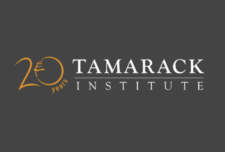
Stand Against Scams is a national awareness campaign Canadians to help protect themselves from scams. Canada's major organizations are teaming up to protect Canadians and to fight scammers. The money stolen through scams is often used to fund human trafficking, organized crime, terrorism, and more....

If any of these statements sound like something you would say about money, this toolkit is for you: • I don’t have enough money to live on each month. • I find it frustrating to have to share my situation over and over again. • I wish I could find help easily but don’t know where to...

Every year, thousands of people in Canada miss out on tax benefits that can significantly increase their income or reduce the amount they owe. For people living on a low income, filing a tax return can mean thousands of dollars more. Check out these resources -- infographics, posters, and social...
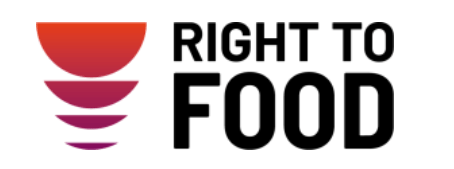
Jointly authored by Prosper Canada and AFOA Canada, this 2018 federal budget submission provides information and recommendations for the increase of benefits take-up for Indigenous...
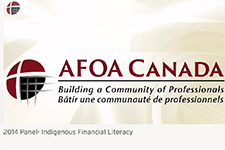
The GetYourBenefits! Project began as an attempt to convince physicians that it is important to diagnose and treat poverty. This paper describes how information on accessing benefits has been communicated to physicians, health care providers, and those who work in public...

Canada faces a decline in financial well-being. This report identifies systemic barriers to financial well-being and proposes a series of targeted institutional reforms, including the following: • Accelerate open banking • Streamline rules for inclusive innovators • Create a community...
The Navigating Tech Abuse Toolkit is a resource for frontline workers in domestic violence shelters in northern, remote, rural, and Indigenous (RRNI) communities. In this toolkit, you will find a series of conversation guides that you can use when working with survivors. Each guide focuses on a...
Whether you’re on a vacation at a resort, waiting in the airport or sitting in a coffee shop, it’s often possible to connect to the Internet through a wireless network provided by the property owner. Sometimes these will be offered for a small fee and sometimes they will be free. But be...

This article shares stories from Amadeusz, an organization that works with people who are incarcerated to further their high school and post-secondary education. Learn about how experiences with the education system are deeply connected with basic needs for housing, income, and social...
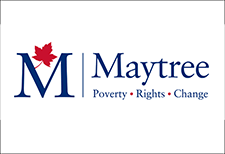
This policy brief argues that employment is not a viable path out of poverty unless policy interventions first address the barriers that prevent work and create a labour market that offers decent jobs. A successful poverty reduction strategy must also speak to the needs of those who will never work...

Mariposa is an AI agent built by Credit Canada, the country’s first and longest-standing non-profit credit counselling agency. Access free, 24/7 AI-powered financial advice and get a personalized debt assessment to help you take the next step toward being...
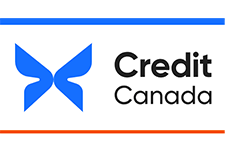
This 90-minute webinar provided frontline practitioners with foundational knowledge and skills to support Canadians living on a low income in accessing benefits. Participants learned the importance of access to benefits for individuals and families, reviewed key skills and opportunities for...

In recognition of November 2025 Financial Abuse Awareness month, the Canadian Center for Women's Empowerment (CCFWE) hosted Empowering Survivors Through Digital Safety: Preventing Technology-Facilitated Economic Abuse within Financial Systems. This webinar explores how survivor-informed policy,...
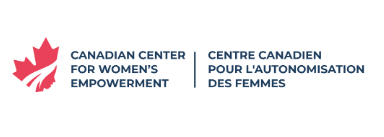
The Financial Consumer Agency of Canada (FCAC) has published research insights that reveal where Canadians are turning for various types of financial advice. FCAC’s Spotlight on Canadians’ use of financial advice showcases data from the 2024 Canadian Financial Capability Survey (the CFCS), a...

Prosper Canada's comprehensive report, Closing the Divide: Solutions for Canada's Financial Help Gap, sets out clear steps governments, financial services, and community organizations can take to ensure every Canadian – no matter who they are or where they live – can access the financial help...
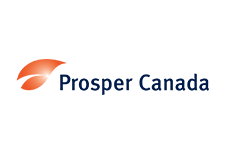
2025 figures from the Canadian Income Survey showed poverty on the rise again, erasing progress made during the pandemic and putting Canada’s 2030 targets out of reach. To reverse course, we urgently need a renewed poverty reduction strategy rooted in income security, housing support, and human...

The 2025 Report of the National Advisory Council on Poverty is progress report on 'Opportunity for All' – Canada’s First Poverty Reduction Strategy. It presents views on whom people turn to when they need support, how they access services, and if the existing benefits and programs meet their...

This OECD Economic Survey provides a comprehensive analysis of Canada's 2025 economic developments, with chapters covering key economic challenges and policy recommendations addressing these...
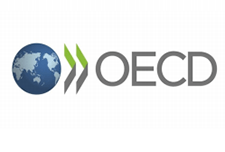
Learn about why investment fees matter, separate fee fact from fiction, and take a look at common types of investment fees and...

